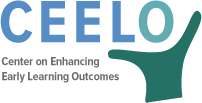This document delineates the steps to establish and sustain a peer learning community (PLC). It begins with a definition of a PLC and then presents the steps to take to establish a PLC.
Early childhood educators and program leaders are key ingredients to quality programming for young learners. The initial preparation and continuous growth and development of the adults in the classroom are essential parts of an aligned and effective system of early education. Research indicates sustained supports are needed to assure that classrooms are staffed by highly qualified adults with commensurate progressions of degrees, certificates and credentials and specialized expertise unique to the birth to grade three continuum.
What Do We Know About Principal Preparation, Licensure Requirements, and Professional Development for School Leaders?
This policy report describes findings from a CEELO review of data on 21 states’ principal licensure requirements, interviews with experts on principal preparation and professional development in seven states, and interviews with staff at the National Association of Elementary School Principals and the National Institute for School Leadership. Our research reveals an array of administrator licensure titles assigned to grade-level authority across states, some permitting principals or administrators the flexibility to oversee programs ranging from early childhood through high school. Early childhood content is not a required element of principal preparation or professional development for principals in most states, according to our findings. Very few states have any formal requirement for early childhood content in licensure for principals responsible for early education programs. Some states have developed policies and programs that acknowledge a need for integrating early childhood content, but very few have progressed beyond initial stages of providing training or outlining policies. (July 2014, Policy Report)
Preparing Principals to Support Early Childhood Teachers
This document summarizes what is known about principal licensing requirements and professional development in early childhood pedagogy and best practice, and provides selected state examples of professional development models for principals.
Early Childhood Teachers in State Educator Evaluation Systems
This annotated bibliography offers resources on observations of teacher practice, student learning and growth, professional development, legislation and policy guidance, and national resources to support early childhood teachers in state teacher evaluation systems. (July 2014, Annotated Bibliography)
Excellence for Every Child: Improving the Quality of Teaching Birth through Grade Three
This roundtable offers helpful resources on improving instructional practices from the 2014 CEELO Roundtable (see “presentations” and “resources” tabs). Roundtable Reflections 2014 provides broad highlights from the sessions and lists resources identified by participants.
Is NJ on the Right Track to Improving ECE Teacher Practice?
This presentation shares information from a CEELO report on teacher evaluation systems in states as they relate to early childhood educators, including how the study was designed, findings, and recommendations. Lori Connors-Tadros and Michelle Horowitz gave this presentation to the New Jersey Early Childhood Academy.
How are Early Childhood Teachers Faring in State Teacher Evaluation Systems?
This report provides state leaders and technical assistance providers with information about the design and requirements of teacher evaluations systems for early childhood teachers in 11 states. The report discusses the approach each state is taking to adapt the state system and develop resources for early childhood teachers. It identifies specific opportunities and challenges state leaders are addressing in implementing student learning objectives as an alternative method of measuring early childhood teachers’ contributions to children’s learning. The report concludes with questions for further research and recommendations for state policy makers. Executive Summary also available.
Inclusion of Pre-Kindergarten and Other Early Childhood Staff in State Teacher Evaluation Systems
This document provides a snapshot of the number of states that include pre-kindergarten teachers in state teacher evaluation systems. It also provides additional information related to infant/toddler and other early childhood staff.
Training to Screen Young English Language Learners and Dual Language Learners for Disabilities
This document recommends experts in the field of assessing young children who are English Language Learners (ELL) to train administrators and psychologists working in district preschool programs for young children with special needs.
Teacher Evaluation | P-3
This presentation explores emerging trends in measuring child growth for teacher evaluation, differing state roles in teacher evaluation systems, and key policies in states. Jana Martella presented these slides at the National Governors Association Cross-State Policy Academy.
Trends in State Funded Preschool Programs: Survey Findings from 2001-2002 to 2011-2012
This report discusses trends in enrollment, funding, and quality standards, as well as English Language Learner and Special Education students, in state-funded pre-K between 2001-2002 and 2011-2012.
Instructional Practices that Support Literacy Achievement of Students Living in Poverty
This presentation reviews research on the impact of poverty and identifies a dearth of literacy resources on the reading achievement of children in low-income households. The presentation highlights intentional instructional practices that focus on vocabulary development, integration of literacy instruction with science and math, and greater access to print and literacy-rich resources can help children as ways to close the achievement gap in literacy and other content domains. CEELO supported the participation of Susan Neuman (University of Michigan) as a presenter for this session at the Wisconsin Literacy (un) Conference.
